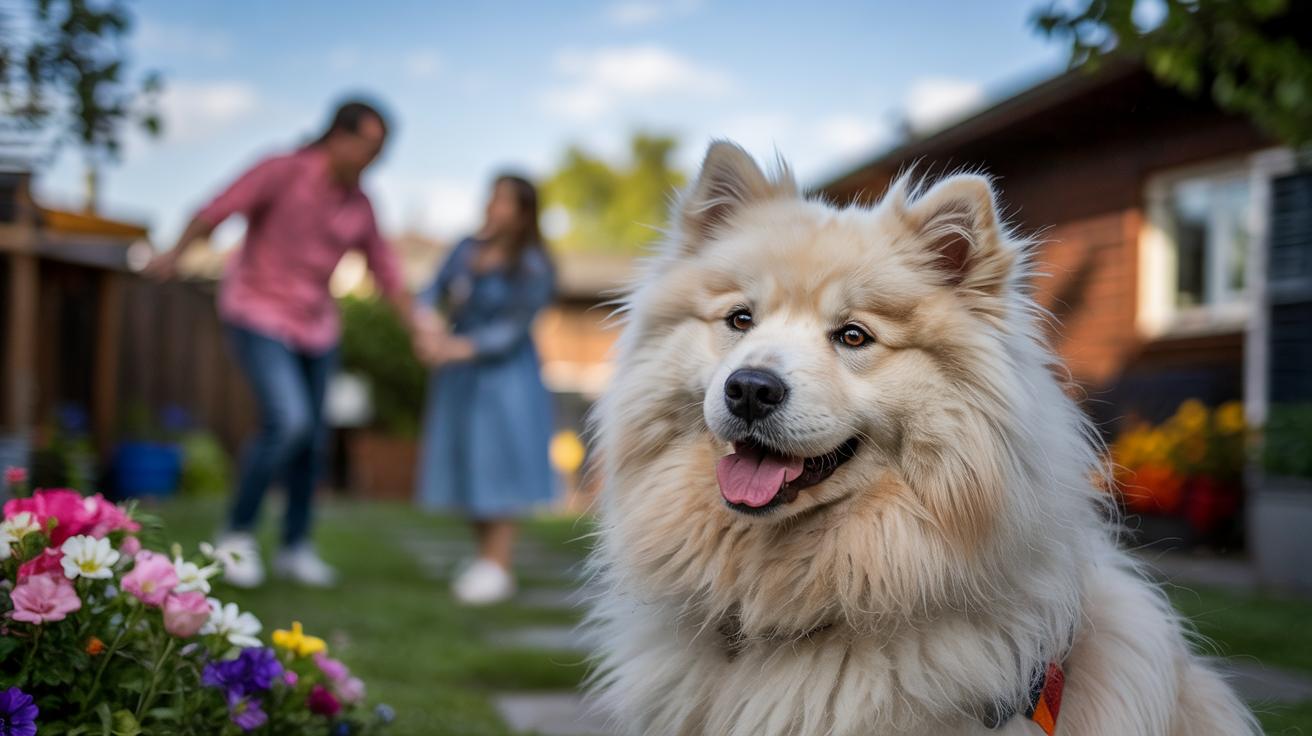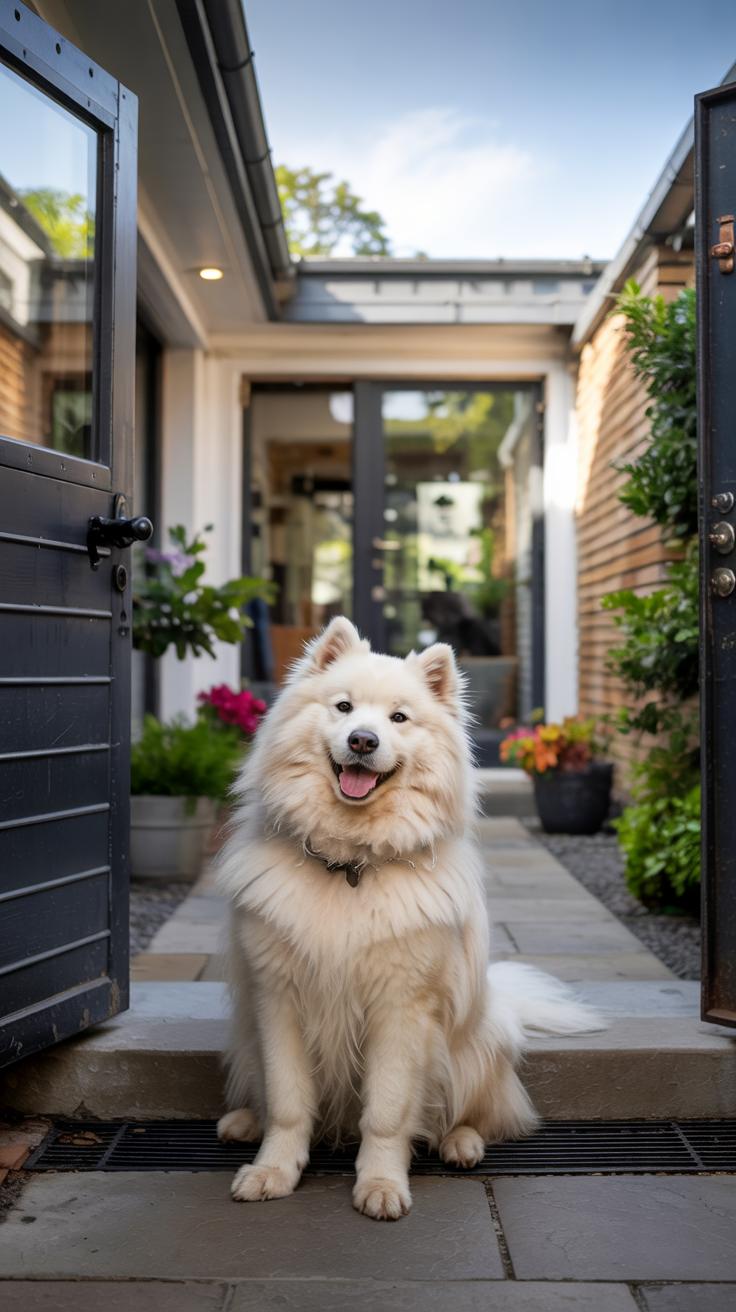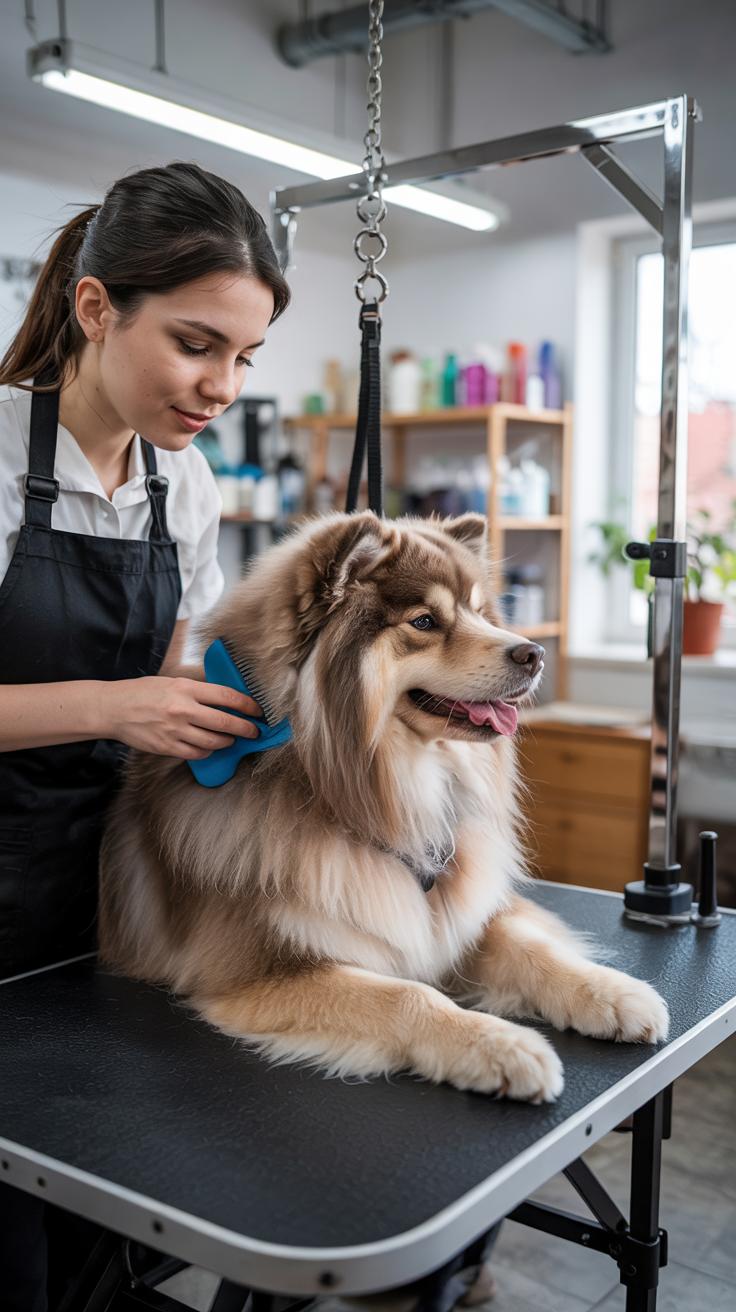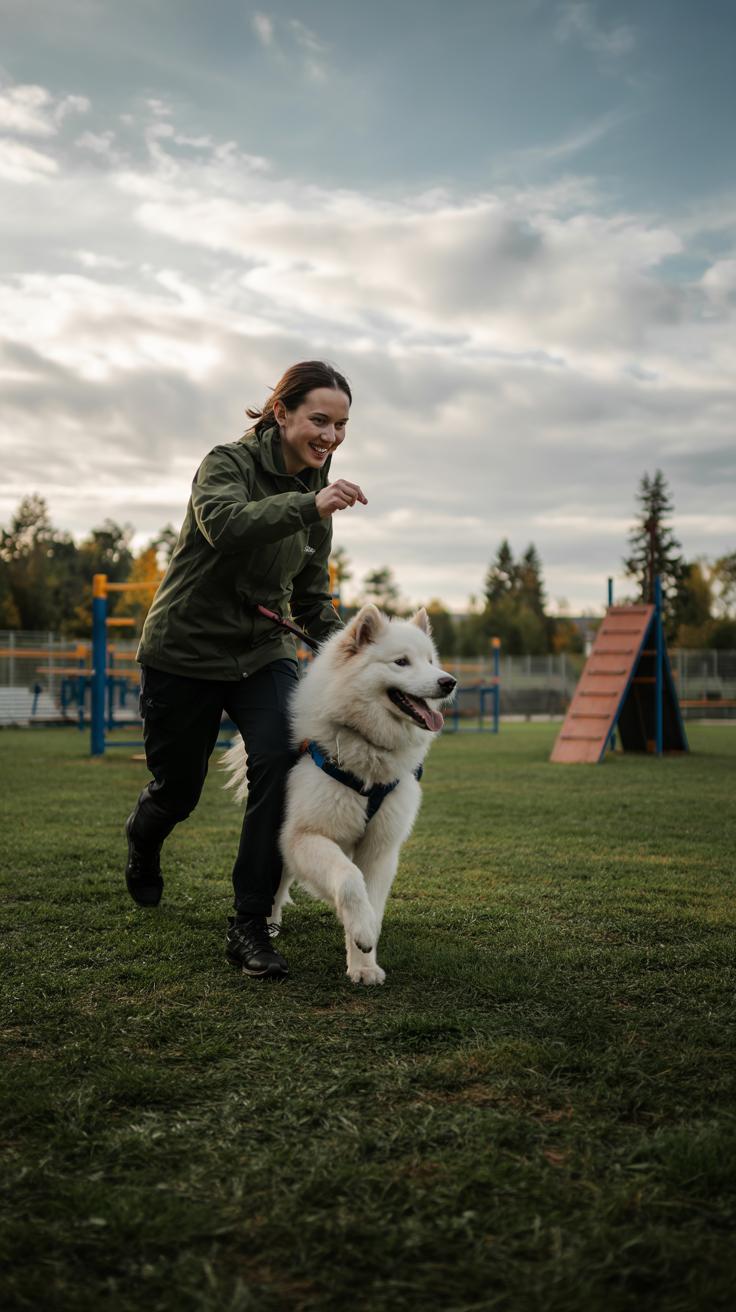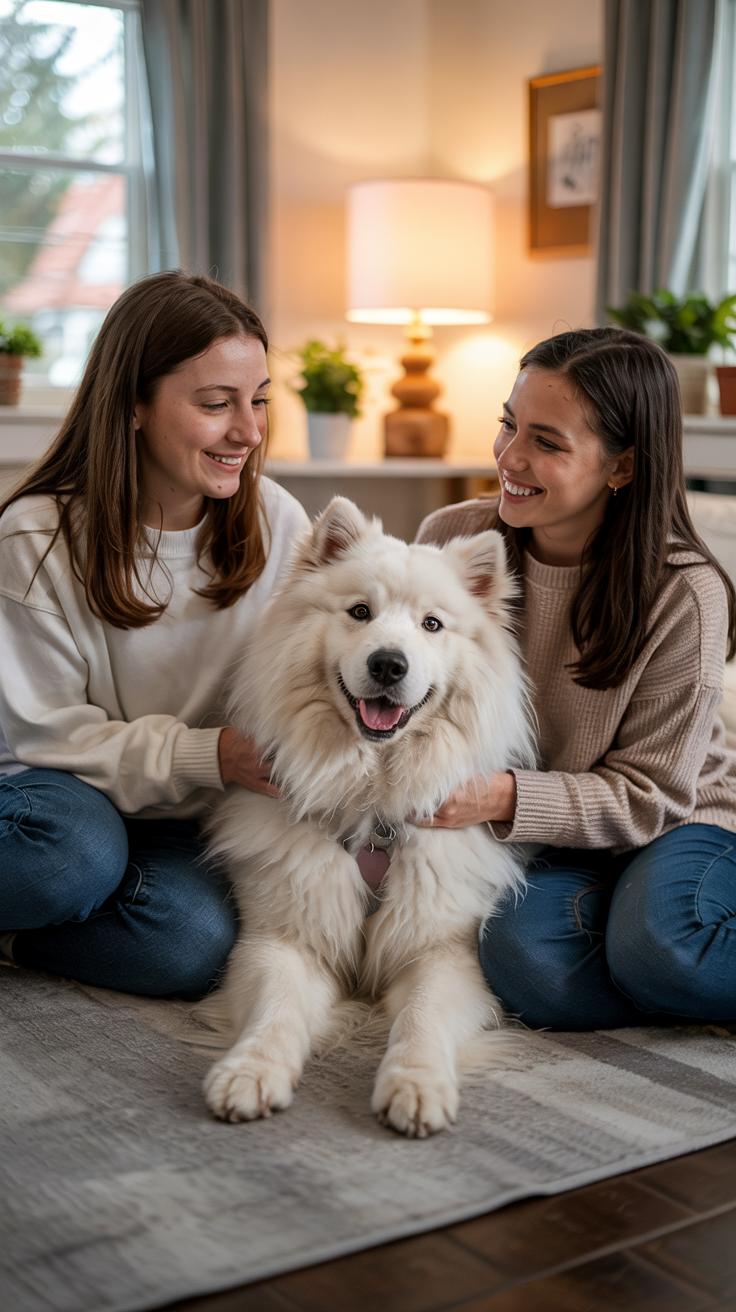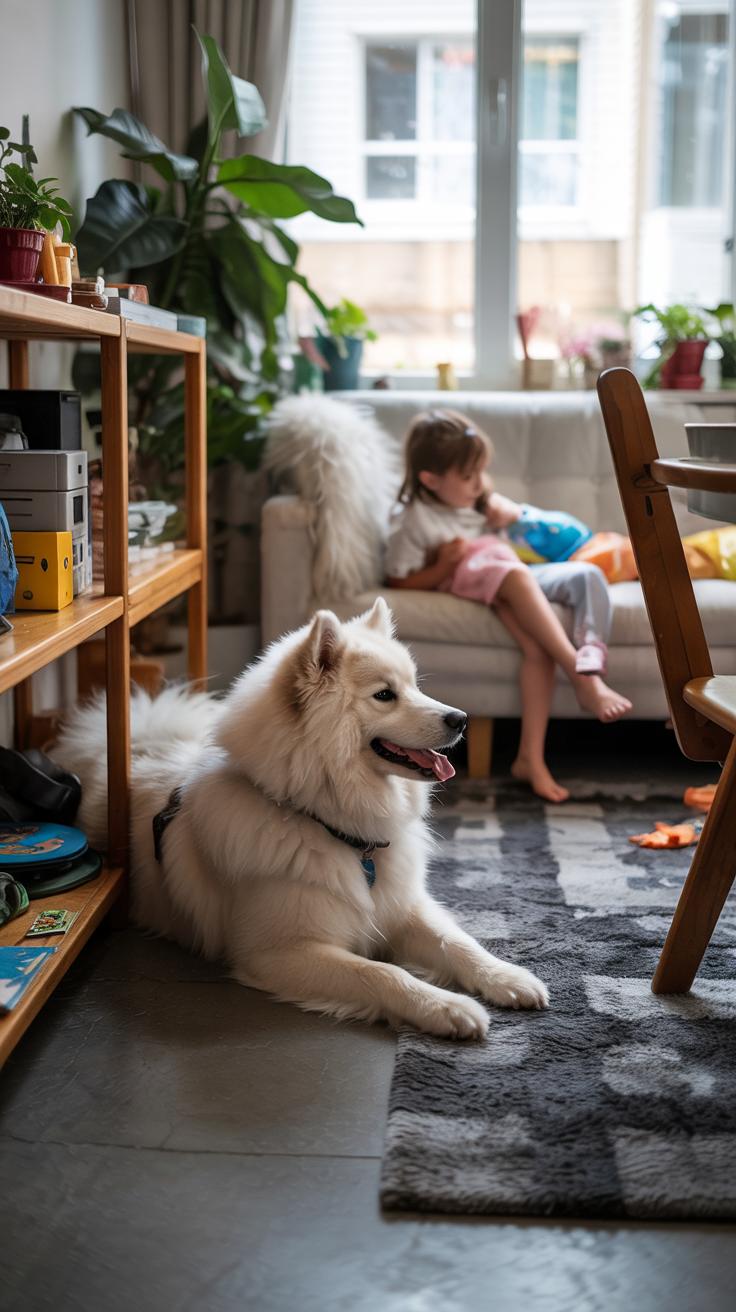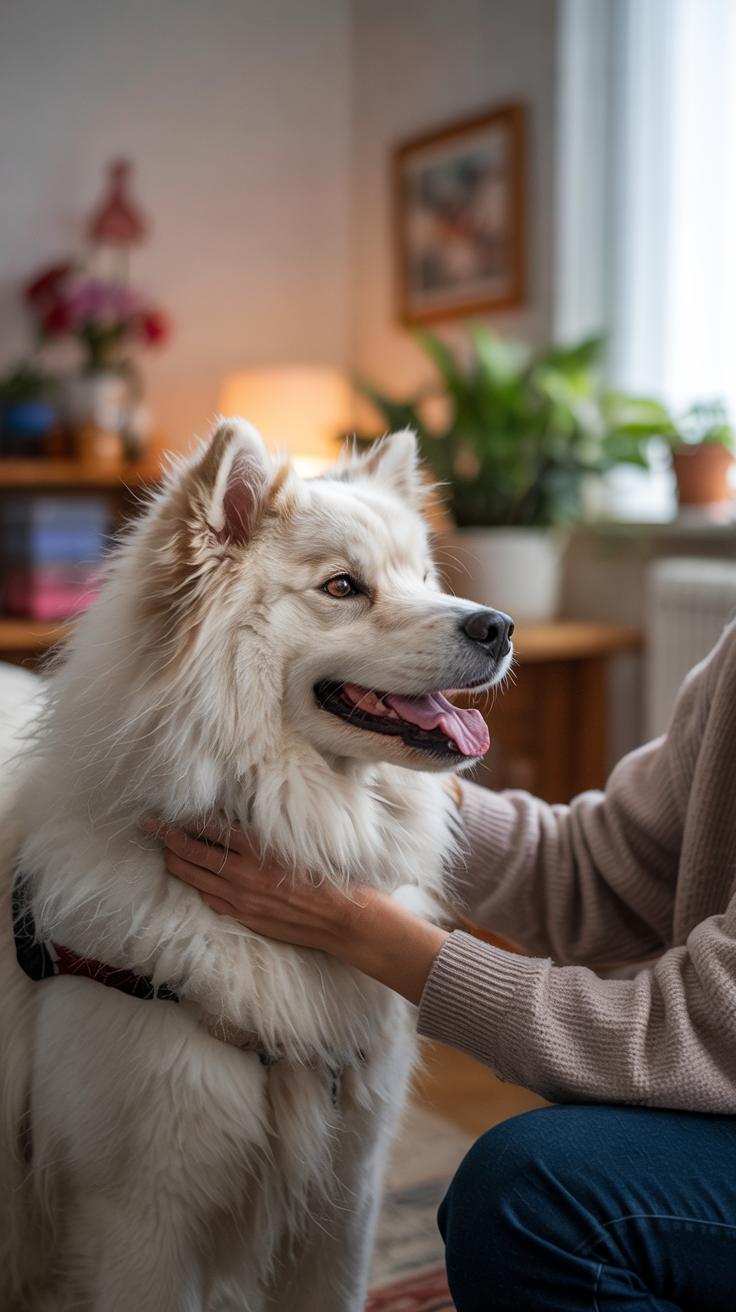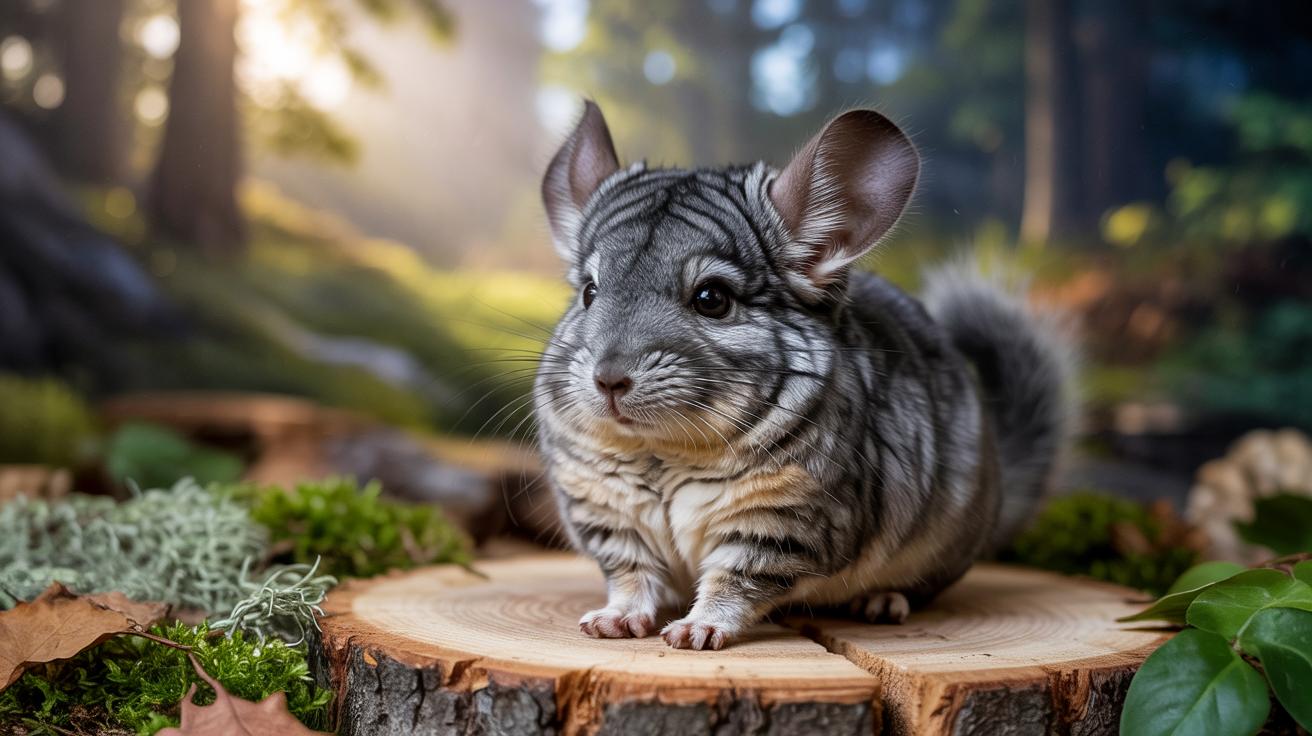Introduction
Samoyed dogs, distinguished by their jubilant disposition and striking appearance, have captured the hearts of many pet families. With their thick, white coats and friendly demeanor, these medium-sized dogs are much more than a pretty face. Originating from Siberia and deeply rooted in the culture of the Samoyedic peoples, they have played a vital role in herding, hunting, and as loyal companions. This article delves into the rich history, unique traits, and care requirements essential for pet families considering welcoming a Samoyed into their home.
As we explore the captivating world of Samoyed dogs, we will uncover not only the breed’s origins but also its distinctive characteristics, training needs, and overall suitability for modern pet families. Understanding the specific requirements of Samoyeds will enable potential owners to foster a happy and healthy relationship with their furry friend. Whether you are an experienced dog owner or a first-time pet parent, this comprehensive guide aims to provide all the insights needed to thrive in life with a Samoyed.
Introduction to Samoyed Dogs
Samoyed dogs, known for their friendly demeanor and striking appearance, have captured the hearts of pet families worldwide. Originating from Siberia, these beautiful canines belong to the Spitz family and were historically bred for herding, sledding, and companionship. Notable features include their fluffy, white coats, which serve to keep them insulated in cold climates, and their signature “Sammy smile,” giving them a perpetually cheerful expression.
This breed is characterized by its strong build, erect ears, and tail that curls over their back. Beyond their physical traits, Samoyeds possess a unique combination of intelligence and an affectionate nature, making them perfectly suited for family life. Their vibrant energy and playful spirit bring joy to households, ensuring they remain a delightful choice for modern pet families.
Samoyeds Unique Characteristics A Delight for Modern Pet Families
Friendly and Sociable Nature
Samoyed dogs possess a distinct charm that makes them highly appealing to modern pet families. Their friendly demeanor is one of the standout traits; these dogs are known to be exceptionally affectionate and easily bond with their human companions. This breed is incredibly sociable, thriving in environments where they can interact with both people and other pets. Their naturally playful spirit encourages positive interactions with children, making them ideal family pets.
Adaptability to Family Life
Another remarkable characteristic of Samoyeds is their adaptability. These dogs can adjust seamlessly to various living situations, whether in a bustling household or a quieter setting. Their playful and easy-going nature allows them to fit into both active lifestyles and more laid-back routines. Additionally, Samoyeds require regular exercise, making them perfect companions for families who enjoy outdoor activities. This blend of friendliness, sociability, and versatility undoubtedly contributes to their rising popularity among modern pet families.
Grooming and Care for Samoyeds Managing Their Thick Coats and Shedding
Understanding the Grooming Needs of Samoyeds
Samoyed dogs boast a double coat that is thick, fluffy, and designed to withstand harsh climates. The outer coat is water-resistant and repels dirt, while the undercoat provides insulation. Regular grooming is vital, as their dense fur tends to trap debris and can mat if not maintained properly. When grooming, focus on brushing their coat at least two to three times a week to minimize shedding and prevent tangles.
Shedding Patterns and Seasonal Care
Shedding can be particularly intense during seasonal changes, with spring and fall prompting a significant amount of loose fur. During these periods, daily brushing helps remove dead hair and maintain their coat’s health. Bathing should be done sparingly to preserve natural oils, usually no more than every two to three months. Attention should be given to their ears, teeth, and nails, which also require routine inspection and care.
Training Samoyeds Effective Methods for the Intelligent and StrongWilled Breed
Understanding Samoyed Intelligence and Nature
Training Samoyeds can be both rewarding and challenging, given their intelligence and independent spirit. Recognizing that this breed is highly intelligent is the first step in effective training. Their strong-willed nature often leads them to test boundaries, which requires a trainer to be firm yet patient.
Techniques for Successful Training
To engage a Samoyed, positive reinforcement is essential. Using treats, praises, and toys for rewarding desired behaviors fosters a happy learning environment. Consistency in commands and training sessions is vital to reinforce learning. Short, frequent training sessions will keep their interest piqued. Implementing fun activities, such as agility training or fetching games, can also enhance their training experience. Socialization is significant for Samoyeds, exposing them to different environments and situations to build confidence and adaptability. This breed thrives on companionship, so involving family members in training can strengthen bonds and ensure their happiness while learning.
Nutrition Requirements for Samoyeds
Dietary Needs of Samoyed Dogs
Understanding the dietary requirements for Samoyeds is pivotal for their overall health and well-being. This breed has a thick double coat, which demands a balanced diet rich in nutrients to maintain both their energy levels and their beautiful fur. A high-quality protein source is essential, as it supports muscle development and maintenance. Foods that include fish, chicken, or beef should be considered integral components of their diet.
While crafting a diet plan for Samoyeds, it is vital to consider their predisposition to certain health issues. For instance, joint health is critical, so incorporating glucosamine and omega-3 fatty acids will promote mobility and reduce inflammation. Additionally, be mindful of their calorie intake; Samoyeds can be prone to obesity due to their relatively low activity levels, especially if not properly exercised.
Nutritional Guidelines for Samoyeds
The amount of food a Samoyed requires varies according to their age, weight, and activity level. Typically, adult Samoyeds should receive two meals per day, comprising high-quality dry kibble designed for large breeds. It’s also beneficial to incorporate fresh fruits and vegetables as treats. Avoid table scraps and foods rich in fillers like corn and soy, which provide little nutritional value. Regular vet check-ups will help adjust their diet based on their health changes and ensure that your furry friend thrives in your modern pet family.
Samoyeds in Modern Pet Culture
Creating Connections in Contemporary Society
The presence of Samoyeds in modern pet culture has surged dramatically, making them a beloved choice among families and enthusiasts alike. On social media platforms, their fluffy white coats and joyful expressions have captured the hearts of many. Instagram, TikTok, and Facebook are filled with dedicated Samoyed accounts showcasing not just their playful antics, but also the deep bonds they build with their owners.
Engagement with these platforms fosters a sense of community among Samoyed owners. Online forums and groups offer a space for sharing experiences, tips, and advice on training and care, creating a robust support network. Samoyeds often serve as an icebreaker in social settings, allowing their owners to connect with others who appreciate the breed’s unique characteristics and charm.
Influence on Lifestyle and Trends
As influencers and pet enthusiasts spotlight Samoyeds, trends like matching outfits for pets and owners have become popular. This trend reflects a broader movement of treating pets as family members, where Samoyeds are often at the center. The breed’s striking appearance and friendly disposition make them ideal subjects for pet photography, influencing lifestyle choices and fashion within pet culture.
The connectedness fostered by Samoyeds serves not only to celebrate the breed but also to empower new owners. As families consider adding a Samoyed to their homes, they can look to the rich tapestry of online content for guidance and ideas on how to integrate this breed into their lives effectively.
Finding the Right Samoyed for Your Family
Deciding Between a Puppy and an Adult Samoyed
Choosing the right Samoyed for your family begins with the age of the dog. Puppies offer the excitement of training and nurturing from an early age, allowing families to instill their values and routines. This option may require significant time and patience, as Samoyed puppies need consistent guidance. On the other hand, adopting an adult Samoyed can be a more pragmatic choice, especially for families with limited experience. Adult dogs often come with established temperaments, making it easier to match them with family dynamics. Whether opting for a young pup or a more mature companion, consider the time and commitment needed to integrate a Samoyed into your household.
Understanding Temperament and Lifestyle Compatibility
When selecting a Samoyed, it’s vital to match the dog’s temperament with your family’s lifestyle. Samoyeds are known for their friendly dispositions, making them excellent companions for families. However, they are also high-energy dogs that thrive on physical activity and mental challenges. Assess your family’s activity level; active households may find these playful canines a perfect match. Additionally, consider any existing pets and how well they may coexist with a new Samoyed. An understanding of your family’s daily routine and energy levels will help you make an informed choice that ensures a happy, harmonious environment for everyone.
Adapting to Life with a Samoyed Adjustments for Modern Pet Families
Integrating a Samoyed into Family Life
Welcoming a Samoyed into the home requires thoughtful adjustments to family routines and expectations. These affectionate dogs thrive on interaction and attention, meaning families should prioritize time for play and companionship. Rather than being an addition to the household, a Samoyed often becomes a central part of family dynamics, necessitating changes in schedules to cater to their needs.
Space is another consideration when adapting. Samoyeds are active and generally need room to roam and play. Families living in smaller homes may need to implement frequent outdoor activities to fulfill their pet’s exercise requirements. Regular walks, trips to dog parks, and backyard games will help maintain a happy and healthy Samoyed.
Grooming and Maintenance Needs
The fluffy coat of a Samoyed requires diligent grooming, which impacts family routines. Daily brushing is advisable to manage shedding and maintain coat health. Families should be prepared for the commitment this entails, as it can take time away from other activities. Integrating grooming into family bonding activities can make this chore feel less like a task and more like a shared responsibility.
Feeding and training practices also need adjustments. A Samoyed’s playful and intelligent nature calls for engaging training sessions that challenge their minds. Families can enhance their relationship with their new pet by participating in training classes together, creating a strong bond while learning essential commands. By making these adjustments, families can cultivate a harmonious and fulfilling environment for their Samoyed, enhancing the joy of pet ownership.
The Joys of Companionship with Samoyeds
Building Emotional Bonds
The relationship between families and their Samoyeds often blossoms into an inspiring companionship, characterized by unwavering loyalty and affection. The inherent friendly disposition of Samoyeds fosters an environment where emotional connections thrive. Children can experience the pure joy of growing up alongside these nurturing canines, forming lasting memories and friendships. Samoyeds, with their playful antics and gentleness, naturally become integral members of the household.
This bond extends beyond mere companionship; Samoyeds offer love and emotional support during challenging times, acting as confidants for family members. Their intuitive nature allows them to sense when someone is feeling down and respond with comforting presence, often nestled by their sides. The unique character of Samoyeds enhances family dynamics, creating an atmosphere filled with warmth, understanding, and joy.
Shared Experiences and Lifelong Memories
Engaging in activities with a Samoyed promotes unforgettable moments that enrich family life. Whether it’s taking long walks, playing in the yard, or even trying out agility courses, the shared experiences strengthen the family bond. These dogs thrive on companionship and enjoy being involved in family functions, turning ordinary days into cherished adventures. Each wag of their fluffy tail and sparkle in their eyes serves as a reminder of the joy they bring.
Conclusions
Samoyed dogs are a delightful addition to any modern pet family. Their friendly natures, combined with their stunning appearances, make them a popular choice for many looking for a loyal companion. Understanding their grooming, training, and nutritional needs is essential for ensuring these dogs flourish in a family environment. As Samoyeds thrive on human interaction, the joy they bring into households is immeasurable.
For those ready to dedicate time and effort into their care, adopting or purchasing a Samoyed can lead to an incredibly rewarding companionship. By embracing their unique traits and fulfilling their requirements, families will not only nurture a healthy and happy pet but benefit from the unwavering loyalty and affection that these wonderful dogs bring into their lives.

